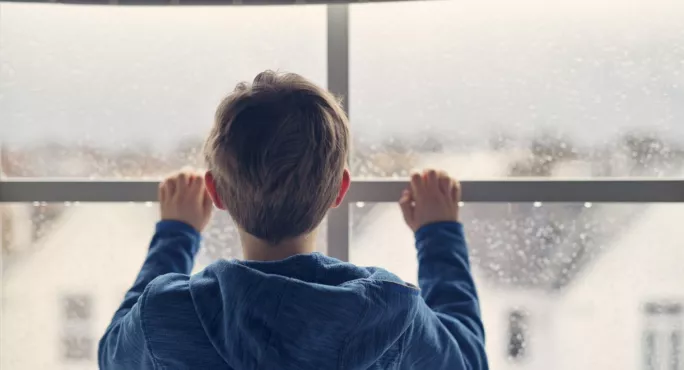Covid: 820,000 pupils off school as isolation soars

More than 820,000 pupils were unable to attend school for Covid-related reasons last week, the latest Department for Education figures reveal.
Less than one in 10 of these pupils actually had Covid or a suspected case of the virus, with the vast majority not attending school due to a potential contact with a case.
Data published today shows that more than one in 10 pupils overall did not attend class on 8 July because of the pandemic.
And the government has estimated that 5.4 per cent of teachers and school leaders were off because of Covid-related reasons - more than double the proportion two weeks ago.
Covid: Pupil absence doubles in a week
School attendance: One in 10 secondary school students off two weeks ago
Restrictions: School bubbles ‘to be scrapped from 19 July’
The 11.2 per cent of state school pupils not attending class for Covid-19 related reasons represented a rise from 8.5 per cent on 1 July, and 5.1 per cent on 24 June.
Covid school absence on the rise
These include approximately 747,000 children self-isolating due to a possible contact with a Covid-19 case, 35,000 pupils with a suspected case of the coronavirus and 39,000 with a confirmed case of Covid-19.
Of those self-isolating, 624,000 came into contact with a case of the virus at school while 123,000 did so outside of school.
The attendance figures for pupils have been adjusted to exclude those Year 11-13 students not expected to attend because they are off-site, the DfE said.
In primary schools, Covid-related absence was 9.8 per cent on 8 July, up from 7.4 per cent on 1 July and 4.5 per cent on 24 June.
In secondary schools, Covid-related absence adjusted for Year 11-13 not expected to attend was 13.5 per cent on 8 July. This is up from 10.4 per cent on 1 July and 6.2 per cent on 24 June.
The figures have prompted criticism of the government from union leaders.
Removing masks ‘was a mistake’, teaching union claims
Kevin Courtney, joint general secretary of the NEU teaching union, said the increasing numbers showed that the removal of masks in classrooms was a mistake.
“The number of pupils absent for Covid-19-related reasons is now the highest at any point in the pandemic,” he said.
“One in five pupils, including more than a quarter of secondary pupils, were absent from school last week for all reasons combined.
“This means that many pupils will be facing further disruption to the end of the school year: missing end-of-year trips, transitions to new classes and schools, and the chance to say goodbye to friends and staff.
“Education professionals are being exposed to classroom outbreaks, with more than one in 20 education staff absent for Covid-related reasons last week.
“With more than half of teachers aged under 40, this means a majority of education professionals are likely to still be vulnerable while awaiting double vaccination.
“Too many of the government’s recent actions on Covid have been driven by optimism, and a refusal to give serious thought to contingency planning. In a pandemic plan Bs should not be viewed as a sign of weakness, but one of strength. Boris Johnson is yet to learn this lesson.”
Nick Brook, deputy general secretary of NAHT school leaders’ union, said the attendance figures “have made for grim reading for a number of weeks and point to how badly the government has lost control of the situation”.
He added: “Yet again we have seen a further increase this week in the number of pupils absent from school as a result of Covid-19. The government’s wider narrative around relaxation of safety measures appears to be at complete odds with the reality in schools right now.
“Furthermore, simply changing the rules around self-isolation is not a proper solution. The government must take urgent action to drive down case numbers amongst school-aged children and implement alternative safety measures in key areas such as ventilation.
“A policy of doing nothing and hoping for the best next term not only fails to address the problem, it risks making things worse.”
The Association of School and College Leaders’ general secretary, Geoff Barton, repeated the union’s call for a decision on whether teenagers will be vaccinated in light of the ongoing Covid disruption.
He said: “This further large increase in Covid-related pupil absence is more evidence, if it were needed, of the crisis in schools and colleges caused directly by the rules requiring teachers to send home large numbers of children to self-isolate who do not necessarily have the virus.
“The government’s decision to end this disruptive policy when the autumn term begins now heralds another huge set of challenges for education settings. They need substantial support, both financially and practically, in setting up on-site asymptomatic testing for students when they return in September, installing high-quality air ventilation systems and in having robust outbreak management plans ready.
“All of these measures might not be needed if a decision is reached to vaccinate all students aged 12 and over, and the continuing deafening silence from the Joint Committee on Vaccination and Immunisation on the subject is mystifying.
“With just days left of the current academic year, school and college leaders need to know whether this is a possibility or not.”
Register with Tes and you can read two free articles every month plus you'll have access to our range of award-winning newsletters.
Keep reading with our special offer!
You’ve reached your limit of free articles this month.
- Unlimited access to all Tes magazine content
- Save your favourite articles and gift them to your colleagues
- Exclusive subscriber-only stories
- Over 200,000 archived articles
- Unlimited access to all Tes magazine content
- Save your favourite articles and gift them to your colleagues
- Exclusive subscriber-only stories
- Over 200,000 archived articles